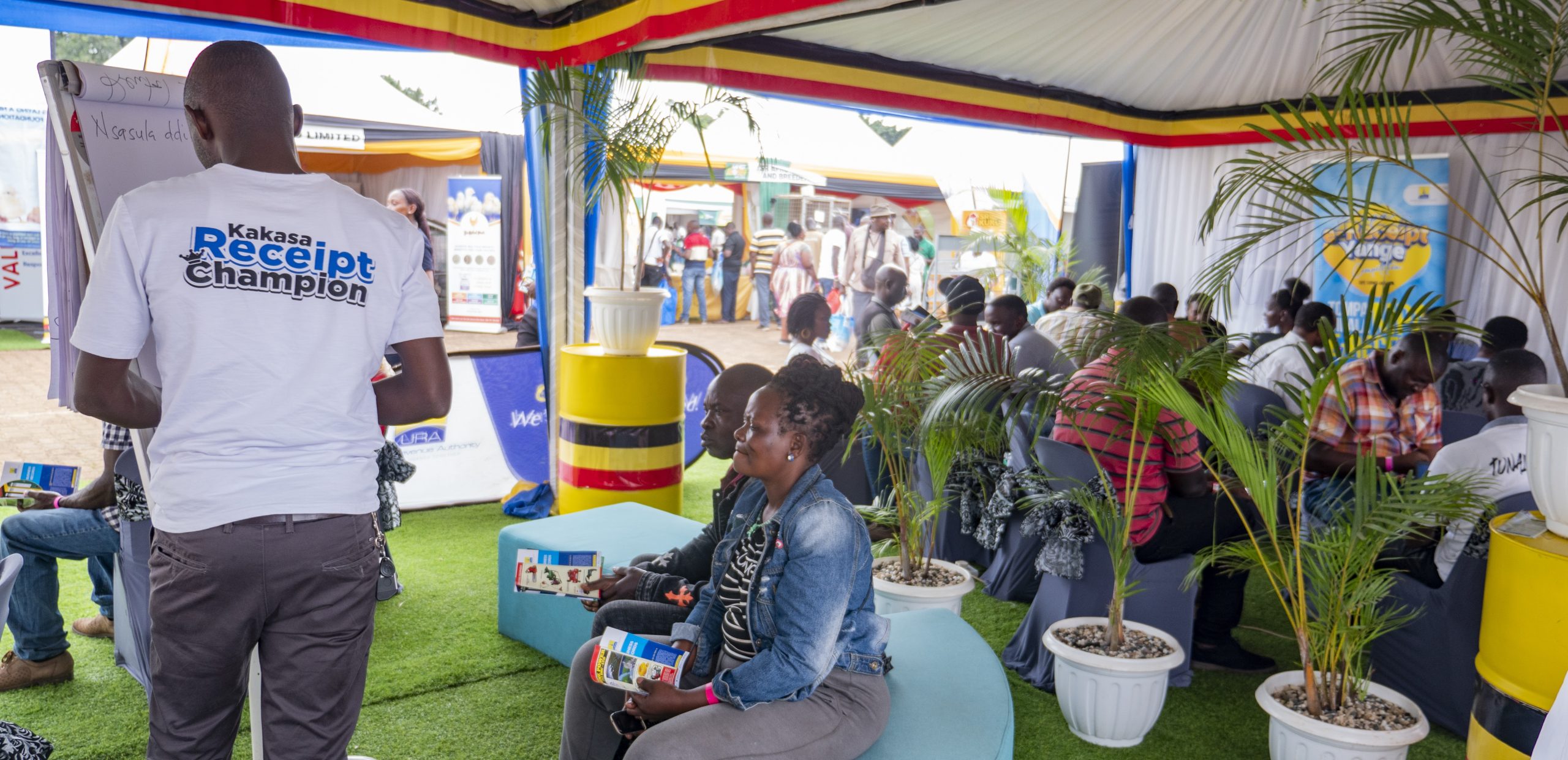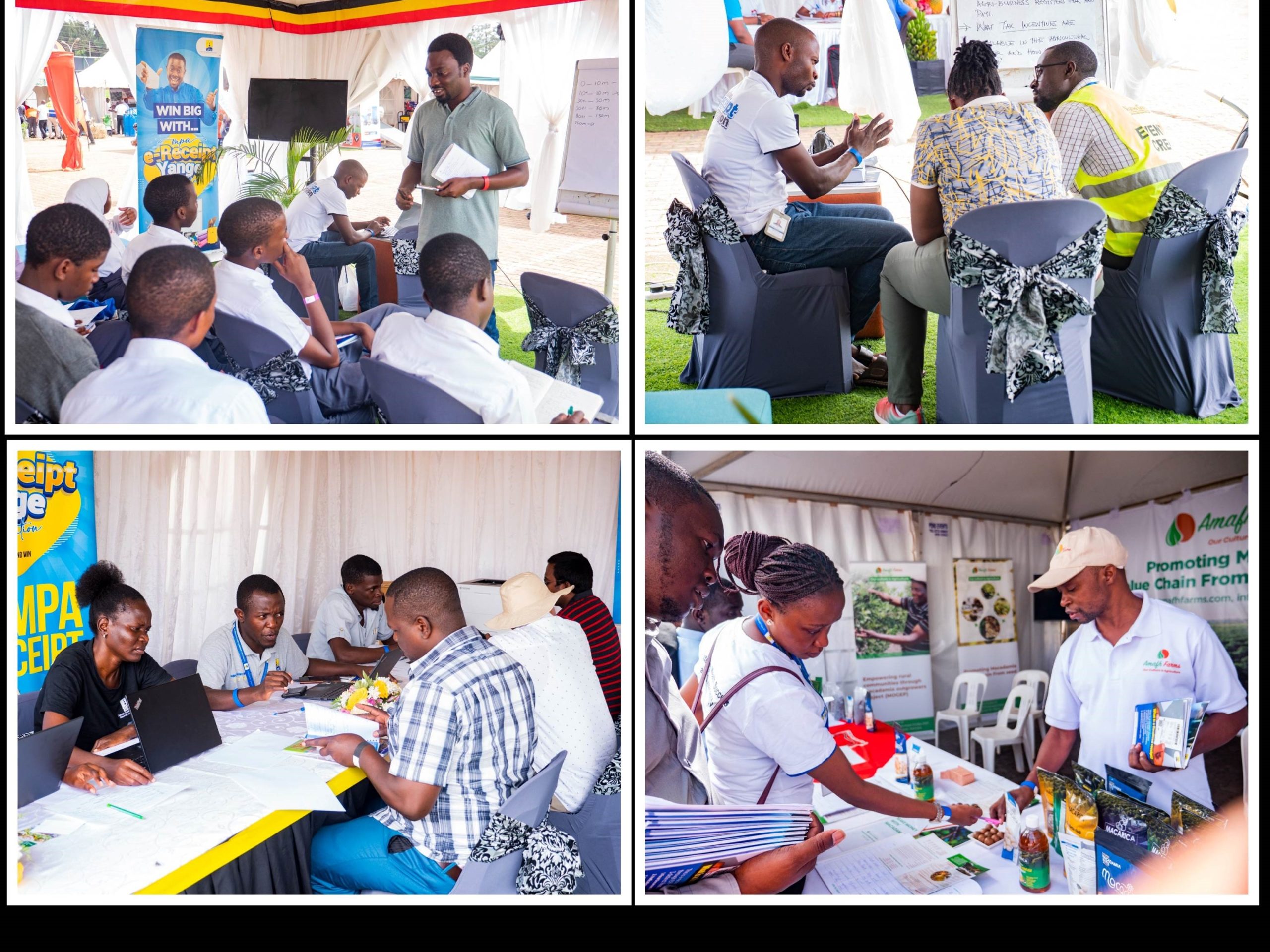
A team of tax educators from the URA pitched camp at Kololo Independence grounds, which played host to Uganda’s biggest agricultural exhibition – the Harvest Money Expo 2024 – organized by Vision Group Uganda.
For three consecutive days, the team engaged with streams of players within Uganda’s agricultural sector, including, but not limited to, grass-root farmers, retailers, and current and prospective investors in this space.
Andrew Kyakonye, a tax education expert said that the team came to majorly educate taxpayers on how taxation intersects with the agricultural sector in Uganda.
“We needed to let them know that agriculture, as any business, requires of commercial farmers to pay income tax on the agribusinesses,” he said. “In so doing, we broke the myth that existed, implying that farmers are immune to income tax,” continued Kyakonye.
He added, “If you are a commercial farmer, it’s prudent that on the income you receive after a specific sale of the product, dedicate a portion of it as tax to the government.”
Besides giving tax advisory services, the team also taught exhibitors about the available tax incentives within the agricultural sector that can be leveraged by the farmers to expand their portfolios.
“We have distributed about 800 tax incentive guides to exhibitors and walk-in clients,” said Kyakonye before he added, “they should know the incentives because they are already into the business. We came to add value to businesses.”
During the excursion, Edward Otim Kenneth a managing director of a farmers holding SACCO in Kwania District expressed concern about the persistent messages from URA concerning the outstanding dues his SACCO needed to pay, though SACCOS are exempt until June 30, 2027.
“Today, I have got clarifications, the team has explained to me that it’s merely a slight oversight issue which will be sorted out with immediate effect,” said Otim, whose SACCO congregates over 600 members who produce about 25 tons of maize a season.
Otim appealed to the revenue body to double down on tax education, especially in the rural communities to mitigate the gap between the latter and the former.
“There’s a need to have some tax literature. We should be updated on how it works to pay after a business has grown. We are ignorant and this illiteracy has made farmers fearful. Even the shopkeeper can just close and go away because they are fearful,” ended Otim.
By Dismas Nuwaine, MMU/PCA





No Comments yet!